One year on from Russia’s full invasion of Ukraine, Michael Alexander hears first hand accounts of the war from Ukrainians who’ve found refuge and hope for the future in Fife.
Smiling and relaxed, 27-year-old mum Alina Gennadievna Sylkina, her six year-old son Svyatoslav Vladimirovich Sylkin and Alina’s mum Galina Viktorovna Polyakova, 55, look like any other family enjoying the peaceful Fife countryside.
Yet almost 12 months ago, they were forced to flee Russian bombs, missiles and atrocities that engulfed their home city in the east of Ukraine.
During a treacherous journey from Lysychansk in the Luhansk region, they fled west alongside millions of other refugees trying to overcome shelling, the destruction of infrastructure and terrible loss of life.
Eventually they made it to Poland and on to Scotland where, thanks to Tayside and Fife-based charity, Siobhan’s Trust, they have been hosted by a “kind, bright and sincere” family in Cupar – a town in which they would now like to stay.
February 24: Invasion of Ukraine begins
In an interview with The Courier, Alina recalled the terrifying events of February 24, 2022, when, following the original Russian invasion of Ukraine in 2014, the full-scale Russian attack began.
“I woke up and saw a message from the director of the school where I worked,” she said.
“Nobody was expected to go to work. I started reading the news.
“Putin had signed an order to start a “special operation”.
“Bomb explosions were heard in the distance.
“I stocked up on drinking water. I quickly gathered everything I needed and, together with my son, went to my father-in-law’s house.
“They lived in a house with a good, secure basement.
“As we walked, the explosions got stronger and closer. Nearby towns could be heard being bombed.
“Our refrigerators were full of food, because we always stock up on food.
“But transport was immediately cancelled, banks stopped working, there was no money in the ATMs.
“The pharmacies were almost empty. Stores quickly sold out and closed.
“Hundreds of people lined up for bread – the only thing they stocked.”
Alina said the whole family spent February 24 in her father-in-law’s basement.
But she couldn’t get through to her husband who was still at work.
He walked four hours to get home because the bus drivers refused to take the workers.
February 25: Illness strikes
On the night of February 25, her son fell ill.
He had an asthma attack.
The entire family had previously been ill with Covid-19.
They called an ambulance, which came and took them to the hospital.
Her son had laryngospasm.
“If the ambulance had not arrived then, he might have died,” she sighed.
They stayed in hospital for three days.
They were discharged because they were not guaranteed safety.
Two days after discharge, a shell hit the hospital department and one doctor died.
Ambulances ceased and they continued her son’s treatment at home.
The bombing of their city and neighbouring towns continued.
Shells hit the school and residential buildings.
It got to a point where they could no longer go to the basement as her son’s condition got worse there.
“We only hoped for a miracle, and all the time we were afraid that we would die,” she said.
Water supplies ceased when the water works were destroyed at the beginning of March.
Power was also cut by damage to cables from the power plant.
There was no light. There was only gas.
At that time, it was minus-14C outside. They melted the snow to wash themselves.
Then the gas was turned off. They were saved by the fact there was a stove in the house, which they heated with firewood.
Fleeing the war-torn city
To this day in her home city, there is no electricity, gas, water or communications.
“Hail was shelled every day and neighbouring houses were on fire,” said Alina.
“As soon as my son got better, my mother and child and I went to the evacuation bus.
“But first we had to travel 12 kilometres.
“All night I called different taxis. Only one person agreed to give us a ride.
“We drove very fast. Bombs were flying around the city.
“We barely got on the evacuation bus.
“There were a lot of people, everyone wanted to leave. We were lucky to leave. As we were leaving the city, a shell flew past the bus.”
It took the bus two days to drive to Lviv in west Ukraine, near the Polish border.
There, they stayed with relatives, who had lost their jobs.
Ten people lived in a two-room apartment.
Leaving Ukraine: Bound for Scotland!
Alina took the decision to travel on to Poland with her mum and son – their first time abroad!
When they crossed the border, they met two volunteer girls, Zhenya and Katya, from Ukraine, working for Scottish charities.
With no destination in mind, and asked where they’d like to go, Alina told them: “Where is safe?” and they were offered Scotland.
Polish volunteers Darek and Gabriella took them to their homes and helped with food, paperwork and visas.
After three months in Poland, they flew to Scotland.
The foundation that helped them go to Scotland received financial assistance from the Earl of Dundee (Siobhan’s Trust).
Arriving in Cupar
Since last summer, they’ve been hosted by the Duncan family of Cupar.
“The Duncan family has helped us a lot,” smiled Alina, whose husband remains in Ukraine and with whom she’s now lost contact.
“We are glad to meet such kind, bright, sincere people.
“In the beginning, I studied the language, went to St Andrews and took an English lesson in Cupar.
“We also go to the Old Parish Church in Cupar.
“There are meetings of Ukrainians, Scots and others wishing to communicate.
“Since last August I have been studying at Fife College in Kirkcaldy on ESOL 2.
“Since December 2022 I have been working in a nursing home in Cupar as a kitchen helper.
“Cupar is a very good town.
“It’s small and beautiful and has everything. Schools, kindergartens, shops, parks and more. We really like it here.
“We want to learn English and maybe try to stay here, because we have nowhere to go now.
“My grandfather, grandmother and uncle are still in Lysychansk.
“Since July 2022, the territory has been occupied by Russia. It’s not safe there since the beginning of the war to this day. Active fighting is going on.
“Our city was bombed. It will take at least 15 years to restore the entire infrastructure.
“Scotland is a wonderful country. I have never met such kind, sincere people as here in my life.”
What inspired the Duncans to help?
Bell Baxter High School-educated father-of-four Dr Callum Duncan, 46, a GP at Pipeland practice in St Andrews, explained why he and his wife Sara, 46, a GP at Airlie practice, Methil, decided to take in the Ukrainians.
Like many others, they were “appalled” at the outbreak of the war. They wanted to help in any way they could.
“The Homes for Ukraine scheme that the government started offered us the perfect opportunity,” he said.
“We also contacted the local charity Siobhan’s Trust who had taken a pizza van to the Poland-Ukraine border to help.
“They found Alina and her family and matched them with us.
“The family have been great and feel very much part of our family already.
“I think it has been a really positive experience for our kids.
“We have encountered difficulties along the way.
“Simple things like opening a bank account or getting checks for jobs to more complex things like long-term plans for housing.
“We definitely feel that the Scottish Government and local councils could have offered more assistance to the family and have shown a lack of forward planning since their very vocal offers of support at the start.
“Despite these challenges we have no regrets, and are looking forward to helping them find more permanent accommodation so hopefully they can continue their lives here in Cupar.”
Sara added that the generosity of people in the Cupar area had been “quite humbling”.
Friends, family and local businesses had helped supply laptops, iPads, clothes, toys and bikes.
She said hosting had been “hard” on their four children – Charlie, 19, now in Edinburgh, Archie, 16, Maggie, 14, and Joe, 12.
But at the same time it had been “good for them”.
“It’s been especially positive for Archie I think,” said Sara.
“It’s really had an impact on him. Svyat and him are really close.”
St Andrews University student experiences
Thirty-four-year old Ukrainian PhD student Viktoriia Grivina had only been at St Andrews University for a few weeks when the Russian invasion began.
A self-confessed “optimist”, she had not thought a full invasion would happen, and thought friends back home were “panicking and paranoid” when they suggested otherwise.
However, when friends started messaging the writer and cultural researcher from Kharkiv, she went on Telegram and was shocked to see the war had begun.
“My friend said she heard explosions in the centre of the city and I started to shake,” recalled Viktoriia in an interview from St Andrews.
“All the channels, like the main online newspapers were broken by hackers, so on the night there was a lot of false information and people didn’t know what was happening. It was scary.
“I was trying to call my dad to not to go to work. Our mayor of Kharkiv wrote on Twitter ‘you should not go to work – the war’s started’!
“But when I finally reached my dad, who works as an engineer, he was already at work.
“I could not sleep for two days.
“Many people had different reactions.
“I could not sit still. The shock of realisation. It was very difficult.
“I wrote to the university to try and get my family out.
“But my family decided to stay in the end.
“It was a struggle because I realised I cannot just tell them – they are independent people!”
Viktoriia considered joining army
Viktoriia, whose PhD study is aptly dedicated to the aesthetic and cultural transformations of Ukrainian cities in the time of war, considered abandoning her studies.
“In the first days when I saw Kharkiv might be taken by the Russian Army, I thought about flying to Poland to come back to Kharkiv and join the army,” she said.
But after learning that the drafting offices were overcrowded and being assured there were “better people for fighting than her 50kg self”, she realised she should stay in St Andrews and run seminars and fundraising for Ukraine instead.
She was buoyed by the sight of Ukrainian flags flying in St Andrews and general wide support.
Last summer she returned twice to Kharkiv, where her parents and her brother and his three children still live.
It was not as dangerous as last spring but there was “still shelling at 2am”, she said.
She went back again at Christmas and was pleased to discover it was “much quieter” with coffee shops and cinemas back open.
For a while, her family lost contact with relatives in the south-east Ukrainian city of Izyum which was under Russian occupation and is the site of alleged war crimes.
However, since the city’s liberation in September, it’s been confirmed her relatives are alive.
As well as her PhD, Viktoriia writes personalised essays and short stories and has been creating a series of humorous stop-motion animations, Kharkiv Legends.
Welcoming Ukrainian author
She also recently welcomed another Ukrainian writer to St Andrews – Hanna Naumkina – who is a creative author from Russian-controlled Luhansk.
Hanna has worked as a commercial copywriter and editor for eight years.
After graduating from the school for writers in 2021, she began writing essays, short stories and plays professionally.
At the beginning of Russia’s invasion last year, Hanna was living in the long-occupied city of Luhansk, where her parents still live.
She chose to leave the area via Russia and Belarus last June to get back into non-occupied west Ukraine , where she now volunteers to help displaced children.
She is currently working on a novel about the Donbas region, using writing as a process to transform the feeling of war into something “stronger than fear, pain and endless grief”.
During her visit to St Andrews, she gave a reading at the Byre Theatre.
Thank you to our wonderful authors, @brams884, Kateryna Ustiokhova, & Hanna Naumkina for their impactful & stunning readings last night! Many thanks to all those who joined us for this special event and engaged in great discussion! https://t.co/C8jUyRK0Lw
— Byre World (@ByreWorld) February 2, 2023
The St Andrews University School of Modern Languages event saw her read from her short story Lost It – a piece dedicated to the search for a sense of belonging and home in the early days of full scale war.
Speaking little English and translated by Viktoriia, Hanna told The Courier: “The news cannot grasp the full scope of devastation in Ukraine. Our friends fight and volunteer.
“But we are both optimistic. We believe in victory for Ukraine”.
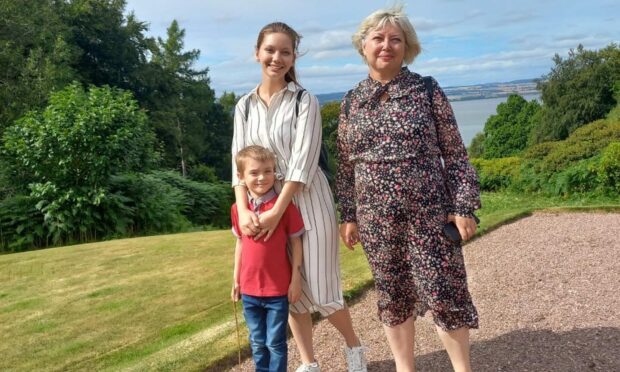
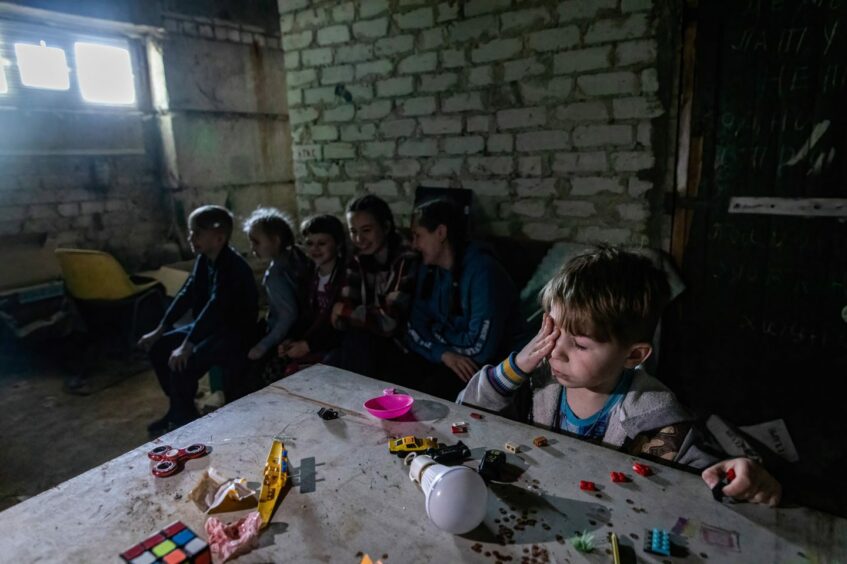

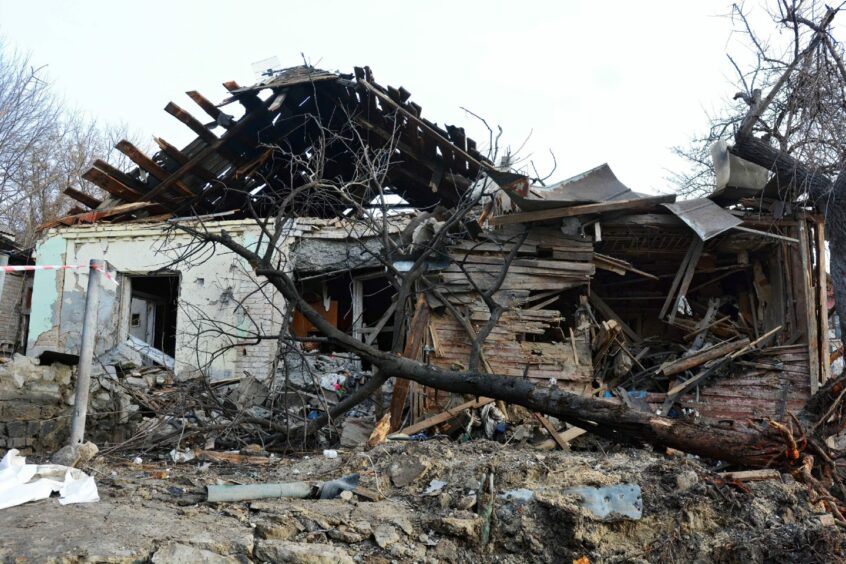




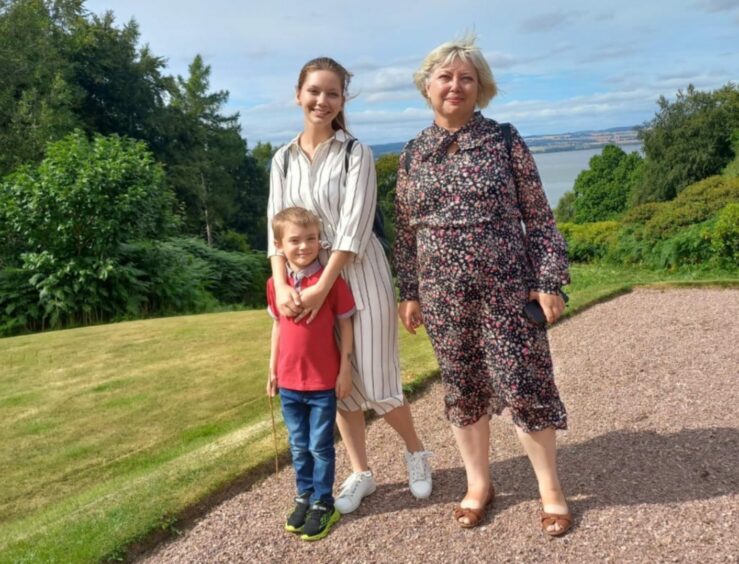
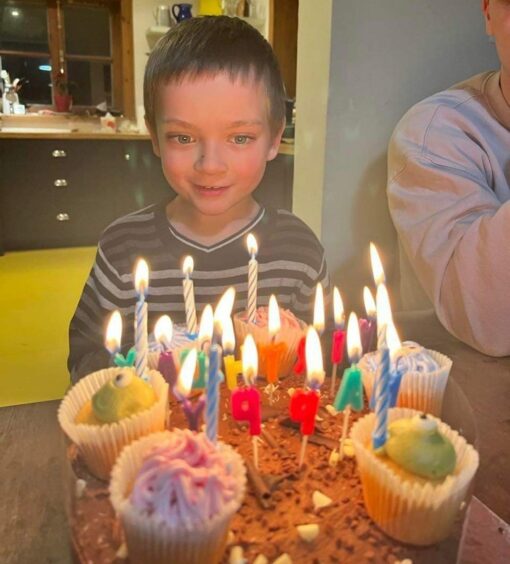
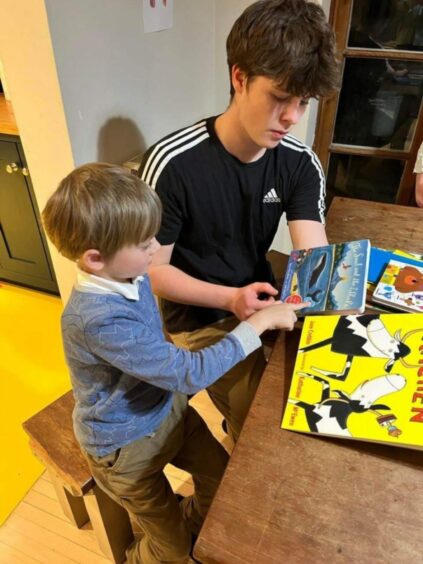

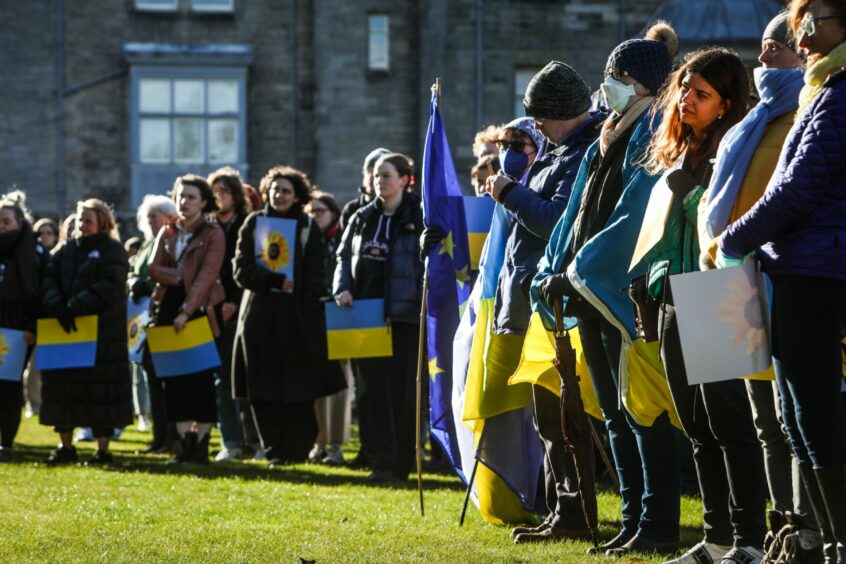
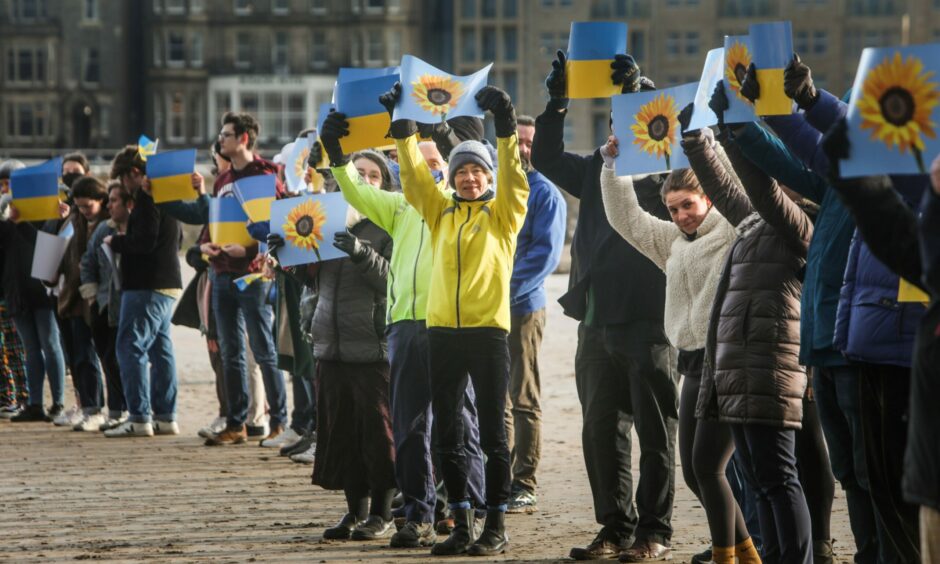
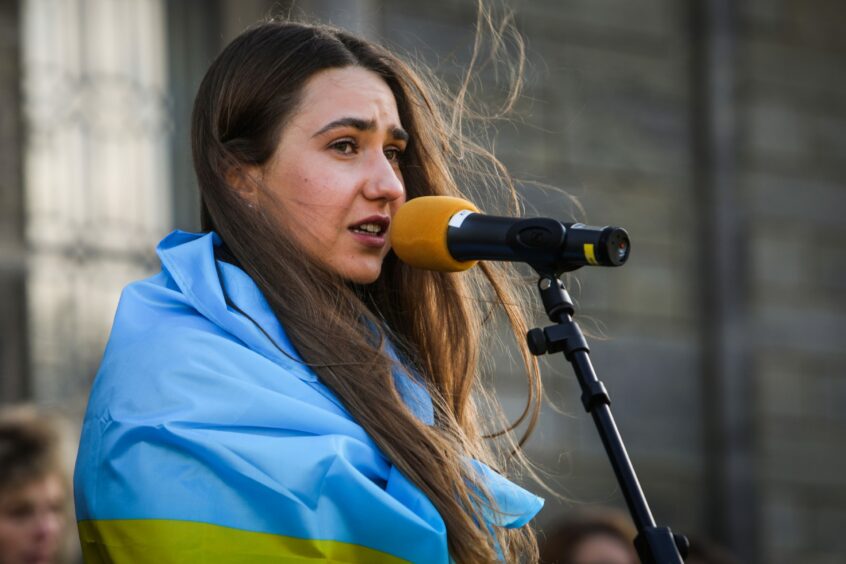

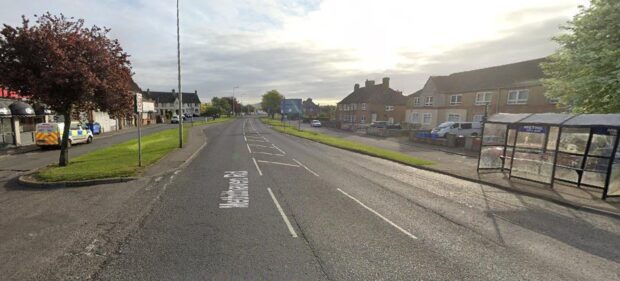
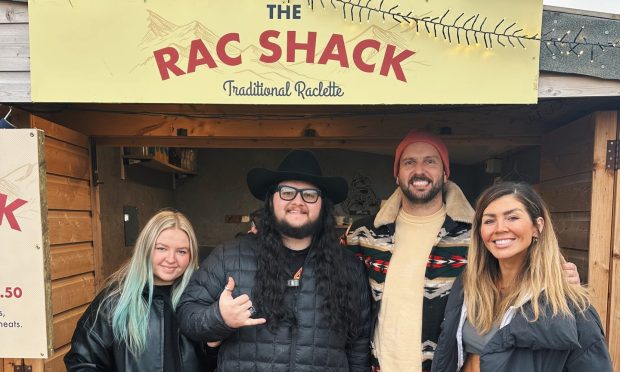
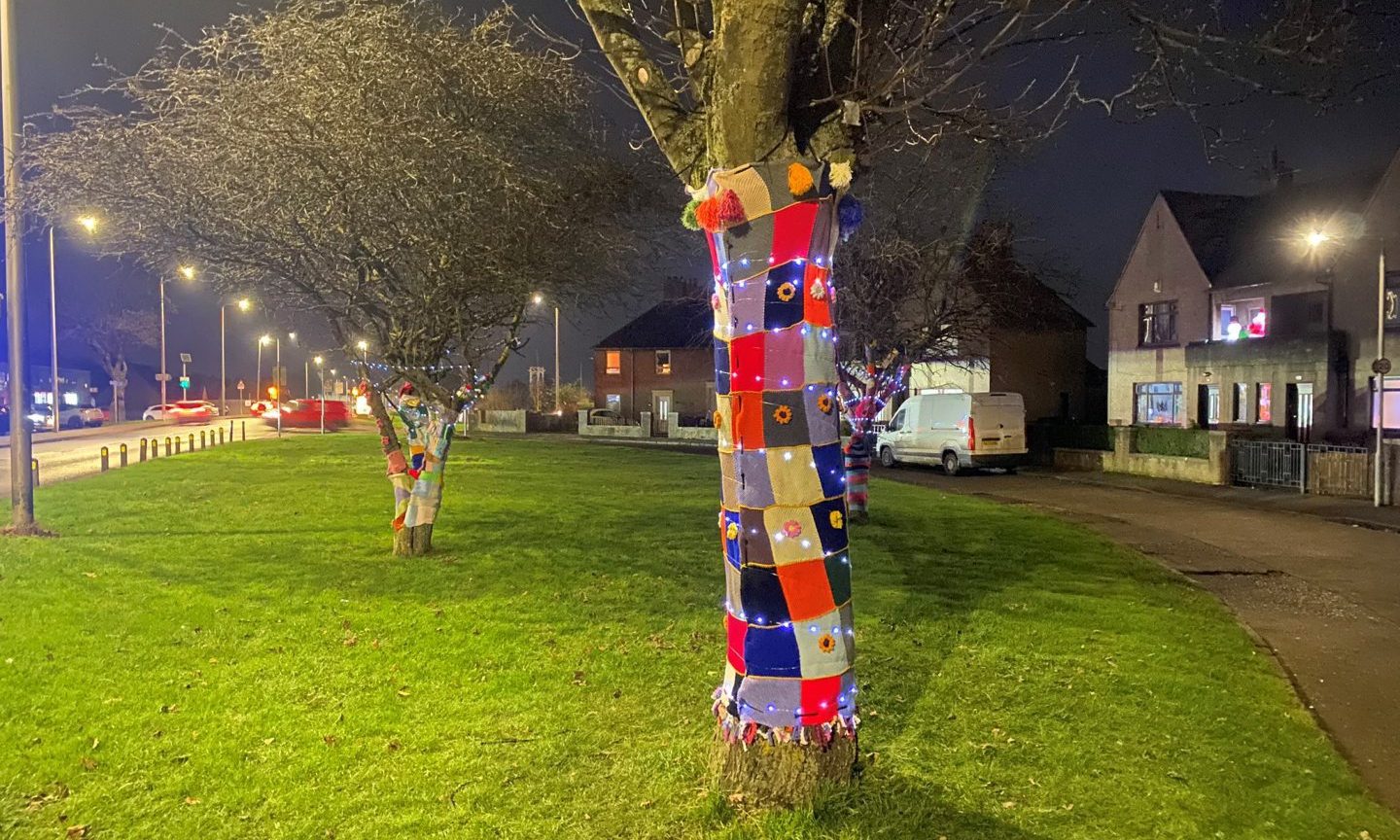

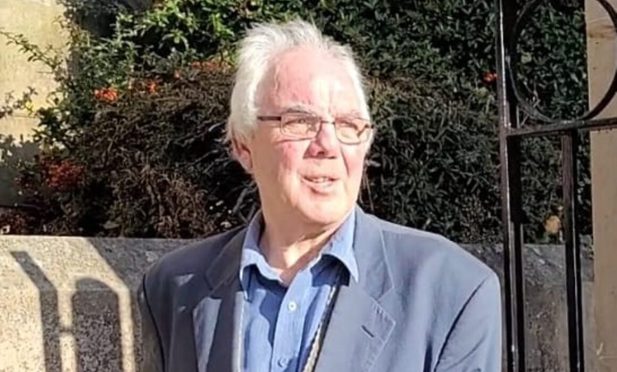
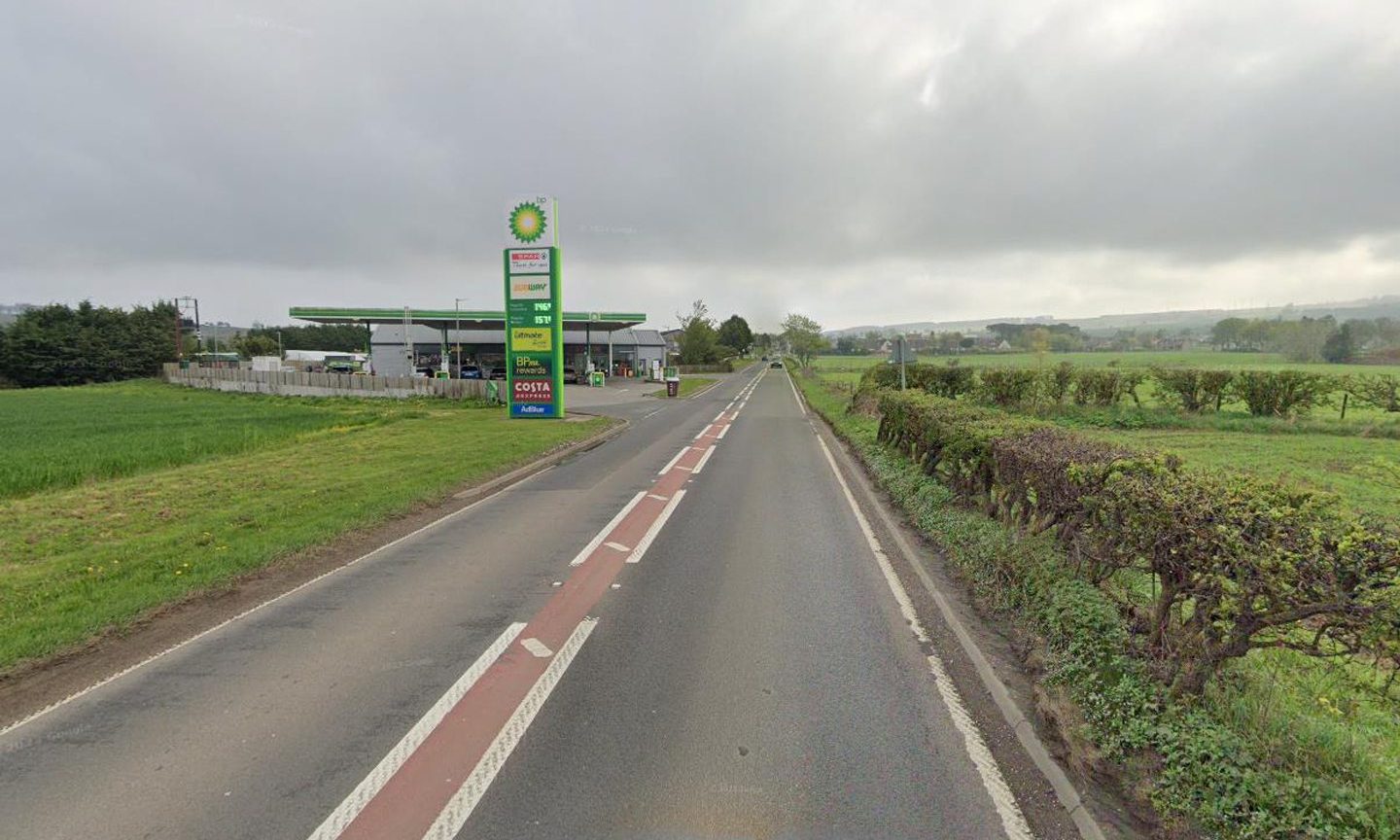

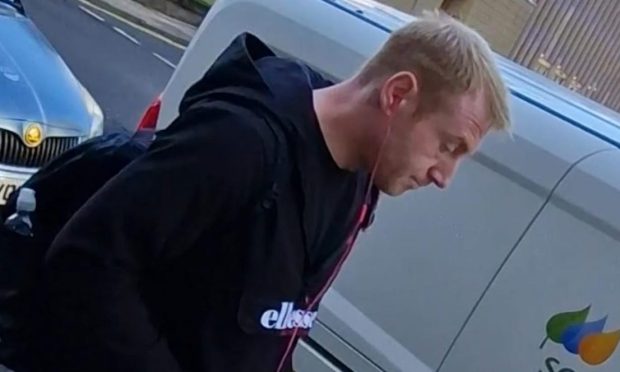
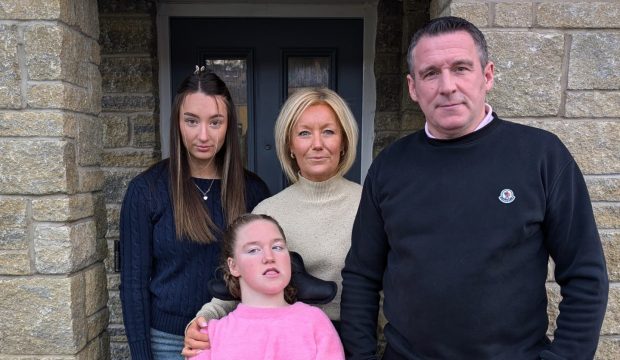
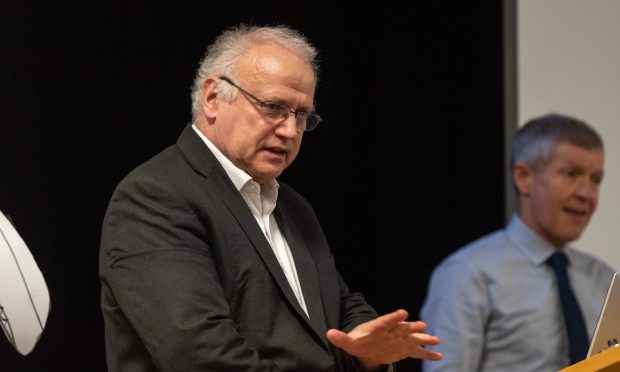
Conversation